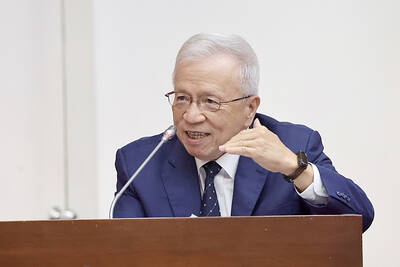Leading Japanese mobile phone operator NTT DoCoMo Inc may scale back a planned investment in a Taiwanese joint venture after suffering losses on other investments overseas, a report said yesterday.
DoCoMo was expected to take a 20 percent stake in the company to be formed from the merger of Far EasTone Telecommunications Co (
As the merger would reduce DoCoMo's stake in the combined company to 5 percent from the 21.4 percent which it already owns in KG, the Japanese firm was forecast to purchase a 23 percent stake in the new venture, according to the newspaper.
Far EasTone, Taiwan's third-largest mobile phone service provider, is partially held by US telecoms giant AT&T.
"However, people close to the deal say DoCoMo wanted to delay the decision on whether to increase its stake by at least a year," the daily said, adding such a delay could force AT&T to sell its shares to someone else.
DoCoMo was under increased pressure from investors to stop earmarking funds for foreign ventures after suffering a massive writedown in the value of such investments, according to the London-based newspaper.
A DoCoMo spokesman declined to comment on the report, but said the mobile phone giant had no plans for additional investment in Taiwan.
"It is expected that our share in the new entity would be smaller [than the 21.4 percent share in KG Telecom]," he said.
The planned merger would create the nation's second-biggest mobile phone operator, the Finan-cial Times said.

JITTERS: Nexperia has a 20 percent market share for chips powering simpler features such as window controls, and changing supply chains could take years European carmakers are looking into ways to scratch components made with parts from China, spooked by deepening geopolitical spats playing out through chipmaker Nexperia BV and Beijing’s export controls on rare earths. To protect operations from trade ructions, several automakers are pushing major suppliers to find permanent alternatives to Chinese semiconductors, people familiar with the matter said. The industry is considering broader changes to its supply chain to adapt to shifting geopolitics, Europe’s main suppliers lobby CLEPA head Matthias Zink said. “We had some indications already — questions like: ‘How can you supply me without this dependency on China?’” Zink, who also

At least US$50 million for the freedom of an Emirati sheikh: That is the king’s ransom paid two weeks ago to militants linked to al-Qaeda who are pushing to topple the Malian government and impose Islamic law. Alongside a crippling fuel blockade, the Group for the Support of Islam and Muslims (JNIM) has made kidnapping wealthy foreigners for a ransom a pillar of its strategy of “economic jihad.” Its goal: Oust the junta, which has struggled to contain Mali’s decade-long insurgency since taking power following back-to-back coups in 2020 and 2021, by scaring away investors and paralyzing the west African country’s economy.

BUST FEARS: While a KMT legislator asked if an AI bubble could affect Taiwan, the DGBAS minister said the sector appears on track to continue growing The local property market has cooled down moderately following a series of credit control measures designed to contain speculation, the central bank said yesterday, while remaining tight-lipped about potential rule relaxations. Lawmakers in a meeting of the legislature’s Finance Committee voiced concerns to central bank officials that the credit control measures have adversely affected the government’s tax income and small and medium-sized property developers, with limited positive effects. Housing prices have been climbing since 2016, even when the central bank imposed its first set of control measures in 2020, Chinese Nationalist Party (KMT) Legislator Lo Ting-wei (羅廷瑋) said. “Since the second half of

AI BOOST: Next year, the cloud and networking product business is expected to remain a key revenue pillar for the company, Hon Hai chairman Young Liu said Manufacturing giant Hon Hai Precision Industry Co (鴻海精密) yesterday posted its best third-quarter profit in the company’s history, backed by strong demand for artificial intelligence (AI) servers. Net profit expanded 17 percent annually to NT$57.67 billion (US$1.86 billion) from NT$44.36 billion, the company said. On a quarterly basis, net profit soared 30 percent from NT$44.36 billion, it said. Hon Hai, which is Apple Inc’s primary iPhone assembler and makes servers powered by Nvidia Corp’s AI accelerators, said earnings per share expanded to NT$4.15 from NT$3.55 a year earlier and NT$3.19 in the second quarter. Gross margin improved to 6.35 percent,